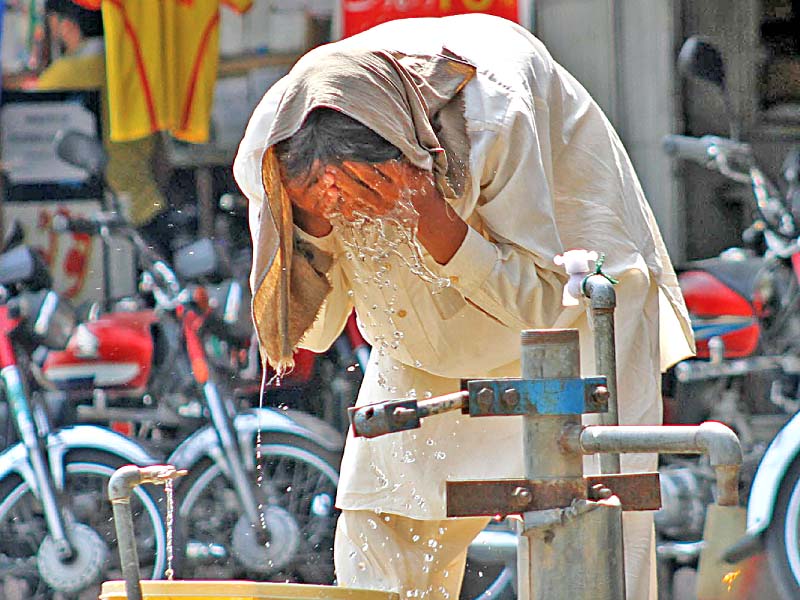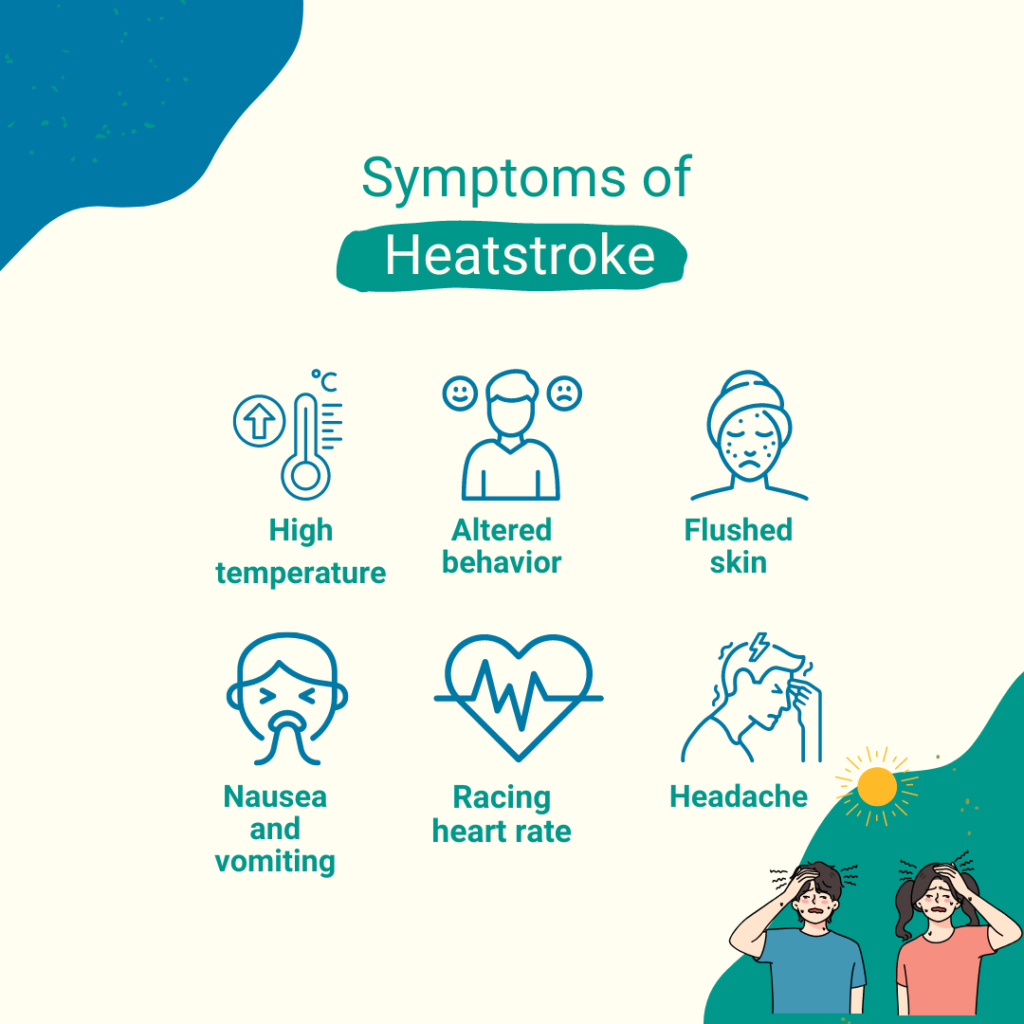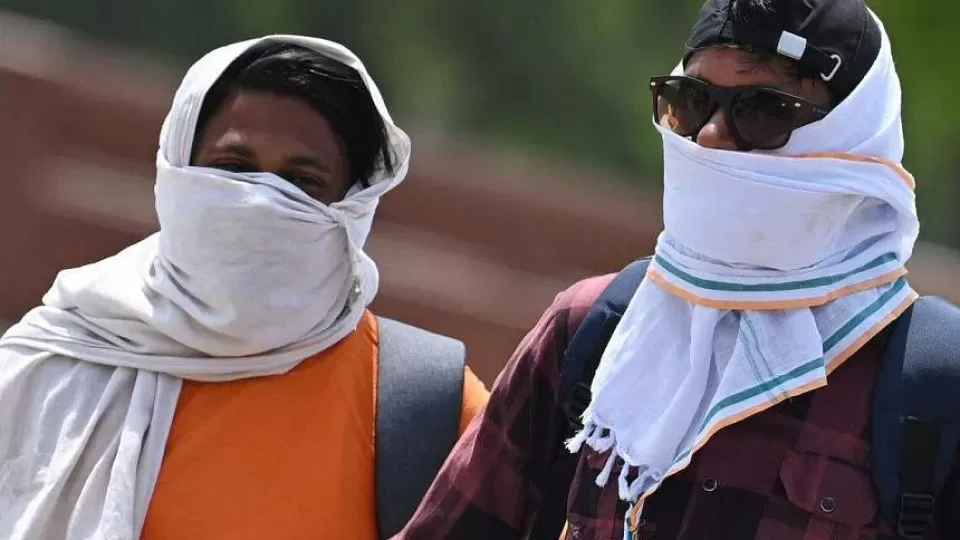Karachi May Witness ‘Hottest Week of 2024’ Next Week
Weather experts predict a significant rise in temperatures next week, with highs reaching a scorching 40-42 degrees Celsius (104-107 degrees Fahrenheit) from Tuesday to Thursday. Staying cool and hydrated will be critical to avoid heatstroke risks during this scorching stretch.
Karachi May Witness ‘Hottest Week of 2024’
While major parts of the country are already experiencing simmering hot weather, a weather expert Owais Hyder on Sunday predicted that the next week in Karachi could be the “hottest week of the year”. “There is a possibility of an increase in heat intensity in the megalopolis next week,” the meteorologist said.
He said the mercury could be between 40 to 42 degrees Celsius from Tuesday to Thursday. Extreme heat in the metropolis is often coupled by a deficit in power supply, with some areas experiencing up to 15 hours a day of loadshedding. Pakistan is increasingly vulnerable to extreme weather events, which scientists have linked to climate change.
Karachi Braces for Potential Scorcher Next Week
Get ready, Karachi! The city might be in for a brutal heatwave next week, with temperatures predicted to be the hottest of 2024 so far. Weather expert Owais Hyder suggests a significant rise in temperatures, possibly reaching a scorching 40 to 42 degrees Celsius (104 to 107 degrees Fahrenheit) from Tuesday to Thursday.
Karachi on High Alert for Potential Record-Breaking Heatwave
Karachi residents, brace yourselves! The city is forecast to experience its hottest week of the year so far, with temperatures potentially exceeding any previously recorded in 2024. Weather expert Owais Hyder predicts a significant rise in heat intensity, with highs reaching a scorching 40 to 42 degrees Celsius (104 to 107 degrees Fahrenheit) from Tuesday to Thursday next week. This extreme heat can pose serious health risks, particularly heatstroke.
Here’s a breakdown of the situation:
- Unprecedented Heat: Karachi could see its hottest days of 2024, surpassing any prior heatwaves this year.
- Peak Heatwave: The most intense heat is anticipated to occur between Tuesday and Thursday of next week.
- Health Concerns: Extreme heat can lead to heatstroke. Be aware of the symptoms and take steps to stay cool and hydrated.
- Power Outages: Unfortunately, heatwaves often coincide with increased power outages in Karachi. Prepare for potential loadshedding during this period.

Staying Safe During the Heatwave:
- Hydration is Critical: Drink plenty of fluids throughout the day, even if you don’t feel thirsty. Water is best, but consider oral rehydration solutions for extended periods outdoors.
- Minimize Sun Exposure: Avoid going outside during the hottest part of the day, typically between 11 am and 4 pm.
- Dress for the Heat: Wear loose-fitting, breathable clothing made from natural fibers like cotton. Light-colored clothing reflects heat better.
- Seek Air Conditioning: If possible, stay in air-conditioned spaces during the peak heat hours. Public libraries or cooling centers might be options if you lack AC at home.
- Look Out for Vulnerable Individuals: Children, elderly people, and those with chronic health conditions are more susceptible to heatstroke. Check on them regularly to ensure they are staying cool and hydrated.
Karachi’s Potential Scorcher: Timeline Breakdown
Karachi is likely to face its hottest week of 2024 next week, with scorching temperatures forecast. While the exact dates might vary slightly depending on weather updates, here’s a possible timeline of the heatwave:
- Early Next Week: Temperatures are expected to begin rising noticeably compared to recent days.
- Tuesday to Thursday: This is the predicted peak of the heatwave. Brace yourself for the hottest days, with temperatures potentially reaching 40 to 42 degrees Celsius (104 to 107 degrees Fahrenheit).
- Remainder of the Week: The intense heat might gradually start to subside, but temperatures are likely to remain above average.
It’s important to stay updated on the latest weather forecasts as the exact timing and duration of the heatwave can change. Local news outlets and meteorological departments will provide the most up-to-date information.
- Prepare in Advance: Stock up on water, electrolytes, and essentials you might need during potential power outages.
- Beat the Heat on Peak Days: If possible, stay indoors in air-conditioned spaces during the hottest part of the day (typically between 11 am and 4 pm).
- Adjust Your Schedule: If you must be outdoors, try to schedule outdoor activities for early mornings or evenings when temperatures are cooler.
Karachi Heatwave: Potential Health Risks and How to Stay Safe
Karachi is forecast to experience its hottest week yet this year, with temperatures reaching a scorching 40-42 degrees Celsius (104-107 degrees Fahrenheit) from Tuesday to Thursday next week. This extreme heat poses significant health risks, particularly heatstroke. Let’s delve deeper into these risks and explore ways to stay safe during this scorching period.
Heatstroke: A Serious Threat
Heatstroke is a medical emergency that occurs when the body overheats and can no longer regulate its temperature. Symptoms include:
- High body temperature (above 40°C or 104°F)
- Confusion, dizziness, or headache
- Nausea or vomiting
- Rapid, shallow breathing
- Flushed red skin
- Loss of consciousness (in severe cases)
Vulnerable Populations
Certain groups are more susceptible to heatstroke, including:
- Children and infants: Their bodies are less efficient at regulating temperature.
- Elderly adults: Their bodies may have decreased ability to adapt to heat.
- People with chronic health conditions: Heart disease, diabetes, and respiratory problems can worsen with heatstroke.
- People taking certain medications: Some medications can affect the body’s ability to regulate temperature.
Symptoms of heatstroke
Generally, the symptoms of heatstroke include profuse sweating or the absence of sweating with hot red or flushed dry skin, weakness, lethargy, chills, throbbing headache, high body temperature, hallucinations, confusion, dizziness and slurred speech. If one is having any of the symptoms, they should immediately be taken to the nearest healthcare facility.

How to prevent heatstroke?
Heat- or sun-stroke is a preventable condition and the following are some of the common preventive measures that the advisory has shared:
- Avoid going outside during the hottest time of the day.
- Avoid strenuous physical activity if you can. If you must do strenuous activity, do it during the coolest part of the day, which is usually in the morning between 4am and 7am.
- Stay in the shade.
- Do not leave children or animals in parked vehicles.
- Drink plenty of water and avoid getting dehydrated.
- Limit time in direct sunlight during hot weather or in places with high environmental temperatures.
- Refrain from vigorous physical activities in hot and humid weather.
- Persons working under the sun should prevent dehydration and heatstroke by taking time out of the sun and drinking plenty of water/fluids.
- Patients should avoid the use of caffeine and sugar-containing soft drinks and/or tea, as it may exacerbate dehydration.
- Consume salty foods, and use an umbrella.
- Wear hats, light coloured and loose-fitting clothes during the hot/humid environmental conditions.
- Keep the body cool and hydrated by taking cool showers or baths during a heatwave.
- Use cold packs and wraps, towels, sponging, and foot baths to keep cool.
- If you feel dizzy, weak, anxious or have intense thirst and headache during a heatwave, it is best to move to a cool place as soon as possible and measure your body temperature. Drink some water or fruit juice to rehydrate.
- If you have painful muscular spasms, particularly in the legs, arms or abdomen, rest immediately in a cool place and drink oral rehydration solutions (ORS) containing electrolytes.
- Medical attention is needed if heat cramps last for more than one hour.
- Victims of heatstroke must receive immediate treatment/management.








